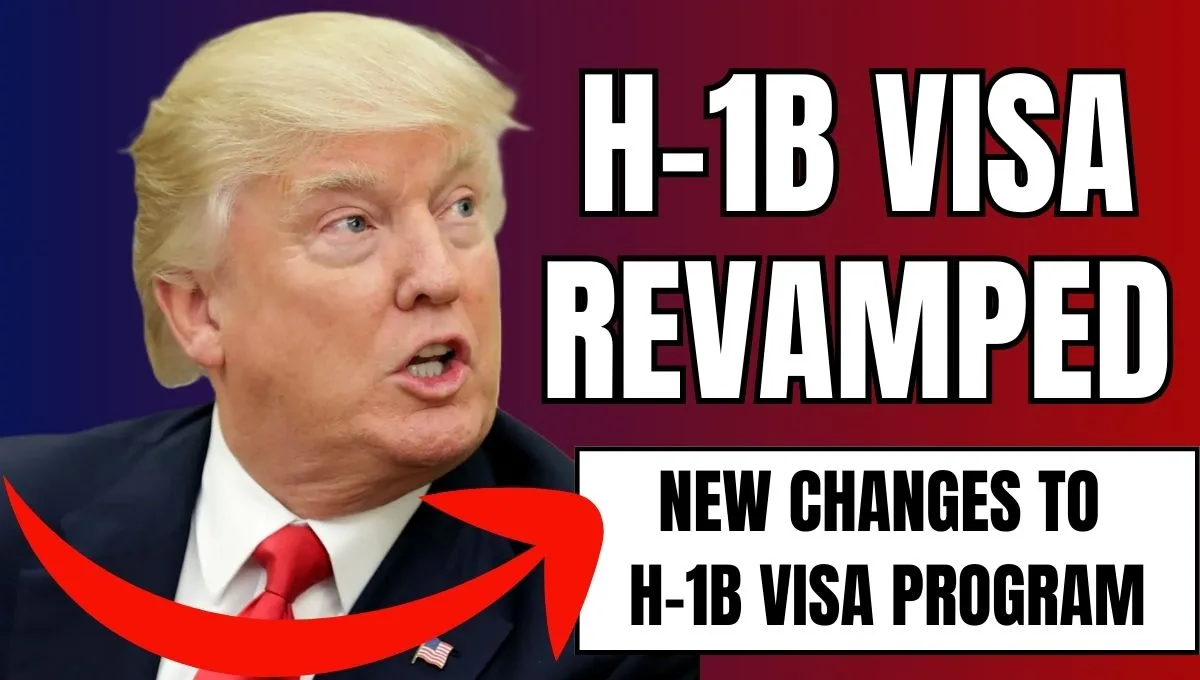H-1B visa revamped from 17 January: Key changes introduced in H-1B programme: On January 17, the long-awaited H-1B Modernization Final Rule from the Department of Homeland Security will go into effect. Purpose of this is to speed up the hiring of highly skilled foreign workers and enhance oversight. Workforce demands, program effectiveness, and regulatory clarity for employers managing the visa process are all addressed by the changes.
The revised Form I-129, which becomes required on the day the rule goes into effect, must be used by employers who petition for H-1B workers. The US Citizenship and Immigration Services (USCIS) website offers a preview of the updated form to help employers adjust to the changes.
Significant changes to the H-1B program
Employers in the US are able to hire foreign professionals in specialized fields that demand advanced qualifications through the H-1B program. Here we are discussing about the final rules that makes a lot of changes, such as:
- Revised Specialty Occupation Criteria: The link between the necessary degree and job responsibilities has been clarified in the updated specialty occupation criteria.Although DHS has changed the definition of specialty occupation, it still refuses to remove it from the final rule. Among these changes are the definition of “directly related” and the elimination of all references to general degree titles.
- Increased Flexibility: New eligibility terms will be advantageous for government and non-profit research organizations that are not subject to the annual cap.
- Assistance for F-1 Visas Holders:In order to prevent disruptions in lawful status and employment authorization while a petition for a change of status to H-1B is pending, students who want to switch to H-1B status will have more flexibility by automatically extending the duration of their F-1 status and any employment authorization until April 1 of the relevant fiscal year.
- Processing Efficiency: For holders of previously authorized H-1B visas, USCIS will expedite applications.Since general degrees like Master of Business Administration are not position-specific, the final rule forbids them from fulfilling H-1B requirements.
H1B Reform: H-1B Visa Change of Policy To Impact Indian IT Employee’s?
Why is the H-1B visa program causing conflict among Trump’s MAGA supporters?
New Changes to H-1B Visa Program
Furthermore, under certain circumstances, people who hold a majority stake in their petitioning company may now be eligible for H-1B visas. The rule codifies USCIS’ authority to conduct inspections and enforce penalties for violations in order to strengthen program integrity. Increased scrutiny will guarantee that the program stays true to its initial goal of addressing labour shortages in highly specialized industries.
Additionally, DHS is updating its deference policy to make it clear that, unless there is a material error or change that impacts eligibility, adjudicators should rely on a previous USCIS determination regarding eligibility for Form I-129 petitions involving the same parties and facts. In the face of possible processing delays, the rule seeks to support current H-1B holders and speed up processing times.
Why is the H-1B visa program causing conflict among Trump’s MAGA supporters?
H-1B visa final rule
This final rule includes the automatic extension of student visas to close the “cap gap.” The purpose of the “cap-gap” period, which automatically prolongs employment authorization for F-1 students, is to avoid the inconveniences that certain F-1 non-immigrants who are applying for changes to their H-1B status may encounter. The current annual cap for the H-1B visa category in the United States is 65,000 per fiscal year.

